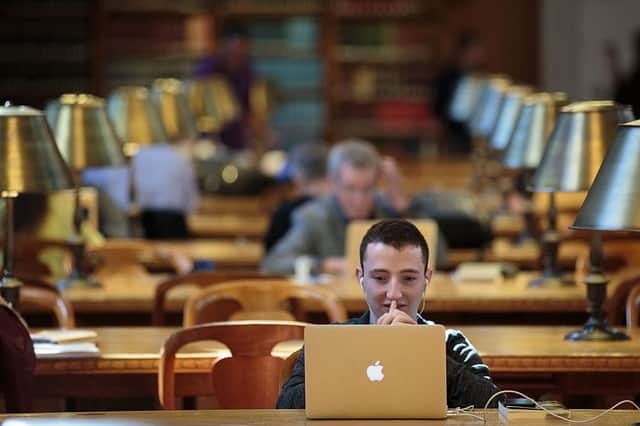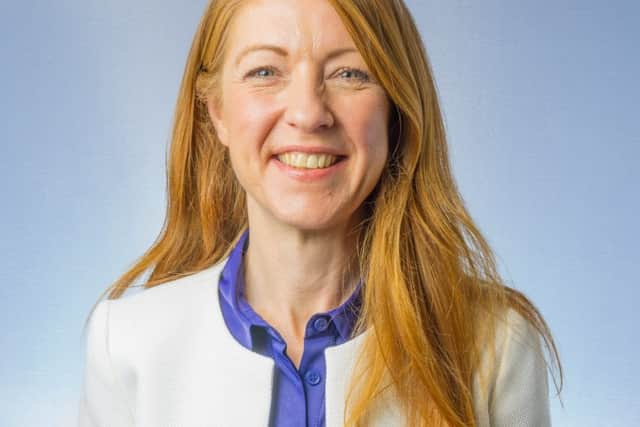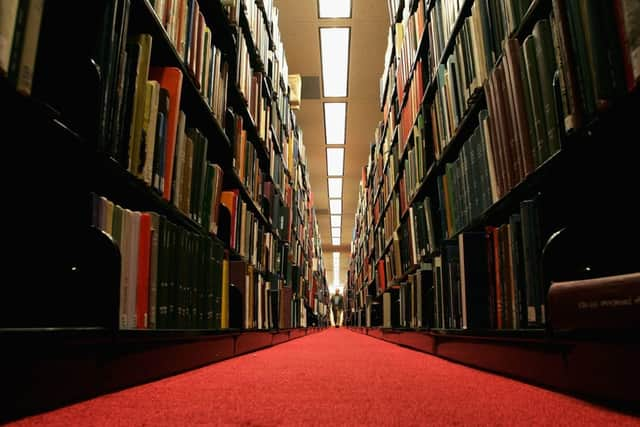Digital libraries experience a surge in membership amid lockdown


Online library memberships have “rocketed” during the coronavirus crisis.
Digital libraries across some parts of the country have seen a 600 per cent plus increase in newly registered users since lockdown began.
Advertisement
Hide AdAdvertisement
Hide AdAll council-owned library buildings had to close because of the health crisis, but their digital counterparts have come into their own.
The Local Government Association (LGA), which represents councils across England, has revealed the boom in new digital users.
There has been a surge at Hampshire County Council, which has experienced a 770 per cent increase. While Cornwall Council has had a 630 per cent spike.
Coun Gerald Vernon-Jackson, chair of the LGA’s Culture, Tourism and Sport Board, said: “The number of people registering to use digital library services across some parts of the country has rocketed.
Advertisement
Hide AdAdvertisement
Hide Ad“Council libraries provide a vital service for residents and act as community hubs in normal times. Their online digital contribution has now become equally important as people turn to them as a way to help pass the time at home.”
Libraries Connected, the charity which promotes the sector’s work, provided the analysis of digital trends for libraries since lockdown. Although the picture for individual services is not yet known, the charity believes online library membership has grown hugely across the country.
Isobel Hunter, chief executive of Libraries Connected, said: “Libraries have seen a huge growth in demand for their digital services during lockdown. E-lending from libraries across England has tripled since they were closed on March 23 and more than four-and-a-half as many people are borrowing ebooks than were before.
“This trend does not seem to be slowing, although once library buildings reopen we would expect these numbers to level off or reduce slightly.


Advertisement
Hide AdAdvertisement
Hide Ad“However, throughout this crisis our public libraries have successfully reached and engaged with new audiences through a range of different digital activities and services. We know that the library as a physical space is crucial to the communities it serves and we believe that an increased digital offer can only enhance this service.”
Meanwhile, the LGA has been lobbying the Government and publishers to work together to unlock an additional £5 million in investment. This would enable libraries to increase their capacity in loaning more e-books and audiobooks.
Many libraries are restricted in the number of e-books and audio books they can provide for their residents because of licensing limits with publishers.
The LGA also wants publishers to be more flexible over the price of e-materials to increase choice for customers.
Advertisement
Hide AdAdvertisement
Hide AdCoun Vernon-Jackson said: “Councils are doing everything they can to protect their residents’ wellbeing during this difficult time. Extra funding would help libraries extend their licences and meet this growing demand.”
He added: “All libraries are seeing an increase in online memberships, although we have concerns about digital inequalities and unequal access to online materials, which we are working with government to improve. It is therefore positive that the Government has brought forward it’s Budget commitment to remove VAT on e-books.
“Libraries provide the largest access to public computers and free Wi-Fi, with many councils seeking to keep that element open as long as possible to allow for benefit applications.


“Councils are seeking to reopen computer access as a priority but we need clear guidance from government on safeguarding measures.
Advertisement
Hide AdAdvertisement
Hide Ad“Arts Council England (ACE) has made available £151,000 to support libraries in their purchase of e-books and audiobooks. Both ACE and DCMS (the Department for Digital, Culture, Media & Sport) are working closely with the publishing industry to secure the flexibilities we have requested.”
The LGA believes the extra funding and flexibility would increase access to reading materials and will help to improve residents’ wellbeing. It could also reduce symptoms of depression and anxiety during this difficult time.
FACT FILE:
Many local libraries have an online section where you can access e-books, audiobooks and reference materials.
You need your library card number and its pin number, although some libraries are skipping this requirement because of the COVID-19 restrictions.
Download a free library app like ‘Libby’ or ‘Borrow Box’.
Advertisement
Hide AdAdvertisement
Hide AdOpen it and find your local library. Then register, if possible.
You can search for books by various means, like author, genre, what’s available and what’s new.
Then you download the book to your phone or tablet.
Loan periods for e-book can range from seven to 21 days depending on the title and library service.The title is then automatically removed from your device after this time, so there are no fines.
Libraries Connected has also created a ‘Reading at Home’ pdf outlining other online resources, like ‘Authorfy’, ‘BBC Sounds’ and ‘Project Gutenberg’.
Digital libraries also have a hashtag, #LibrariesFromHome, to promote their activities on social media.For more see: www.librariesconnected.org.uk/page/librariesfromhome